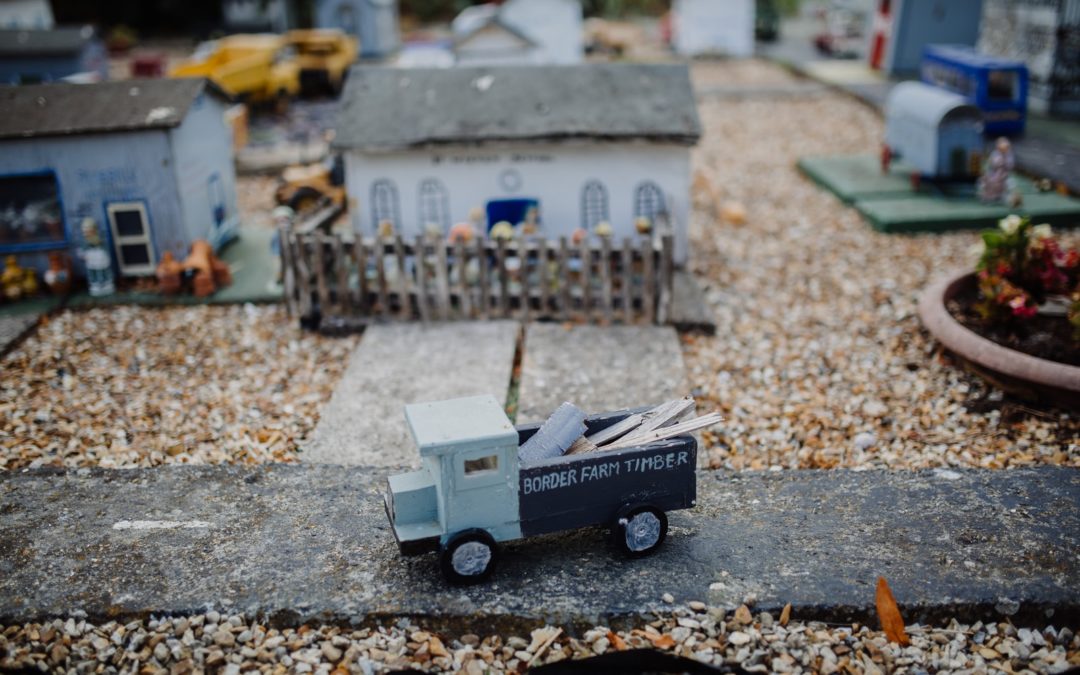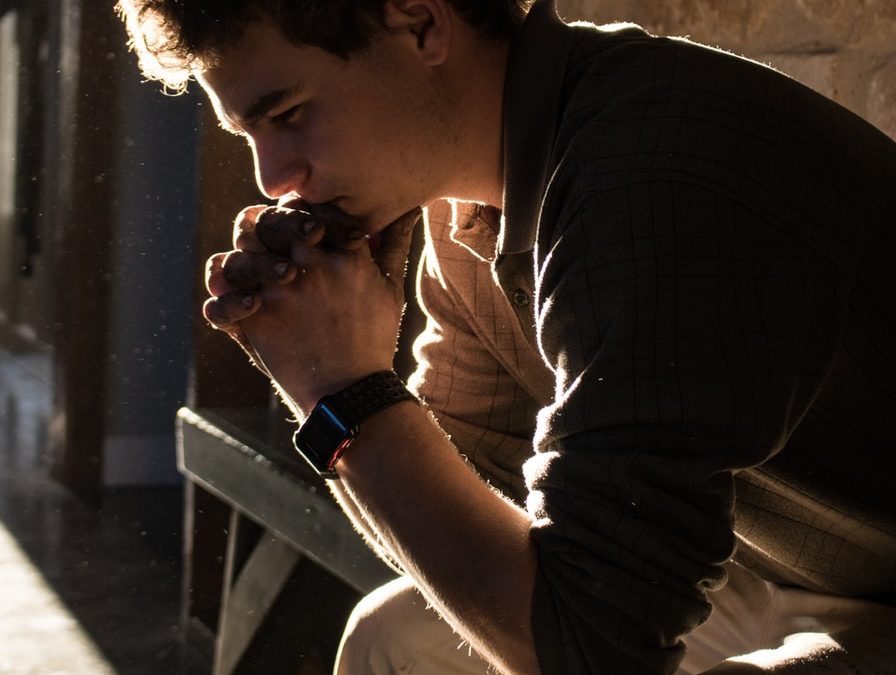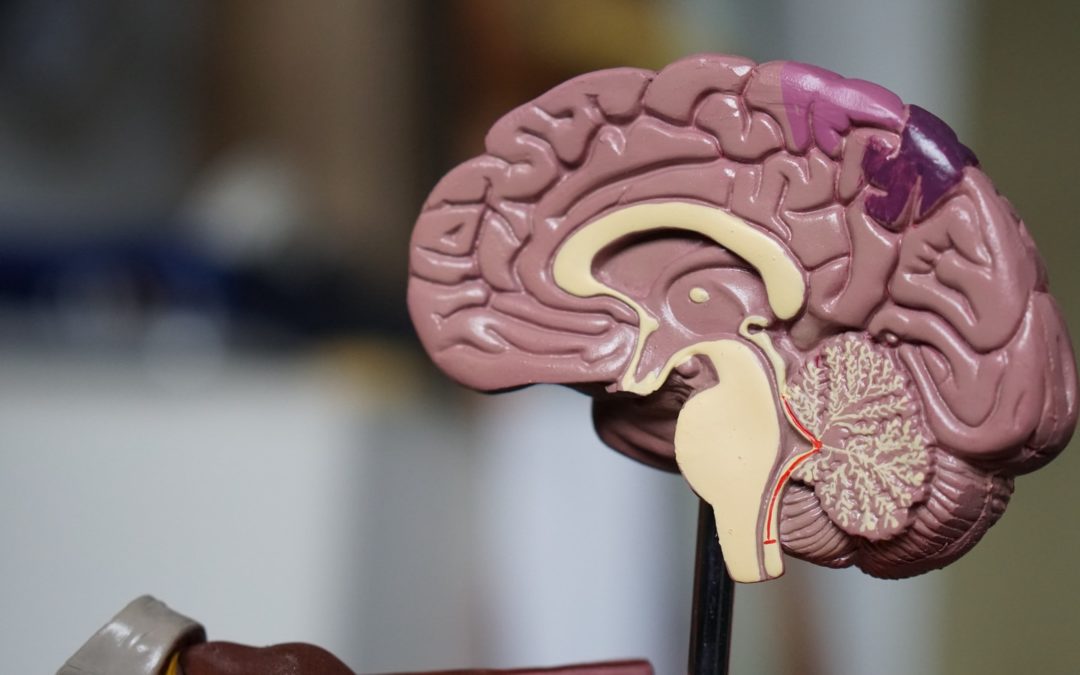
by admin | Jun 23, 2022 | Declutter
Enjoying your Downsize Life is all about getting to the place where you are self-sufficient. I don't mean that you need to be living off the land, growing your own vegetables and distilling rain water for your shower and teaching your kids at home rather than using a state school system! Not at all. What I am keen on is the idea that you can live in a house that meets all your needs for space and utility, that your work or paid employment is fulfilling, and that you have satisfaction and happiness in the physical environment you occupy.
Having enough to satisfy and meet these needs truly is all that you require. Having enough means you having sufficient resources. You can be a creative indie providing skills and services or products to your various clients. You could be a portfolio worker holding two or three separate roles which, when taken together, provide the finance that is enough to cover your bills for accommodation and food, for clothing, leisure time and future savings plans.
You may work in a secure job that you love or one in which you are uncomfortable and looking for a new role that provides greater fulfilment to your own values and sense of what you consider important and nurturing.
Possibly you are out of work and between jobs or in long term unemployment with little expectation of finding work again. In any one of these situations you are able to give thought and attention to how you live right now and whether there are aspects of it that you seek to adjust or adapt.
Enough is about being self-sufficient in whatever way works for you and your household. It is about being happy with how your life looks and works. Accepting the Enough is Enough mindset requires you to separate from what the adverts and the celebrity gossip columns suggest are important and to be admired, and to instead just consider what you want. Having enough for your needs is all you need. Ever.
In a modern, developed economy you are doing well if you have a financial surplus being saved each month. Apparently, more than 70% of working households would struggle to deal with something as simple as finding $750 - $1,000 for a surprise domestic bill, like the failure of the central heating boiler. If you can pay your bills and still have enough set aside for the inevitable surprise bill or incident where an extra $500 or $2,000 is needed, then you are in a good place. If you can do this and still have an enjoyable holiday a couple of times each year, you are way ahead of many people.
To get into an even more positive position, think about taking away completely or significantly reducing any of the workplace stress or political troubles that come with employment in a larger work place where there is always someone above you, telling you what to do and by when, or giving you tasks to do which seem ever more difficult to achieve. To remove yourself from that requires an extra financial move requiring a radical reassessment of your own cost of living and survival each month. Where you can make significant downward adjustments to your regular outgoings, you are creating more flexibility in what work you choose to do to earn money.
This lifestyle requires you to listen to your heart and hear what your feelings are telling you. Where you feel anguish, worry, upset or simple unease, there is a message for you and an idea to explore. If you open your post and constantly see bills that are just beyond your ability to settle in full, this is a wake-up call to think about your monthly cost of living and start to look at cutting those costs so that you can live within your means to pay those same bills next month.
If you have possessions you never use and where you have low emotional attachment to them, then they should be up for sale and gone. If you have a three bedroom house and have no need for regularly hosting visitors can you be better off in a home with just one less bedroom, but which still accommodates your needs for personal space and storage? Would such a move either save you money in significantly reduced rent or allow you some greater flexibility over your choice of work? If you own your home and sold it to move into a different space that you buy for less, can the surplus you create by moving house then be used to boost your savings and reduce any debts for good? If you work in a place where conflict between employees is difficult, the quality of management is low, or where the rate of pay is poor, you can use these factors as motivation to find employment that better suits you.
Think about the areas of your life where you feel unhappy, stressed, worried or dissatisfied and consider how you could make things different. The easiest way to determine if there is a need for change, is to ask yourself: "How am I coping?"
Listen to your mind and hear the honest answers that come out of this. So, how are you coping? What can you change today?

by admin | Jun 9, 2022 | Declutter
Adverts tell you to buy new, to acquire more, to 'go large' and so often we fall for the message that is pushed upon us. We should own a larger house with more space, a greater distance from the neighbouring property and a kitchen that is more like a chef's showroom than a place for enjoyable family dining.
Of course, we are told that we need an extensive wardrobe that provides clothes for every season, but also for every month of the year, together with the absolute best of bags, watches and additional accessories. Each of these items comes with a well known and heavily branded label which we are encouraged to discreetly mention or simply show off to our friends.
Gathering more possessions and more debt is no way to feel relaxed and happy. The emotional burden of greater debt for the shiny new possessions soon comes through and starts to hurt and cause you pain. You can stand against the consumerism of the adverts, designed to separate you and your money. There is a simpler approach and we refer to it in our home as the Downsize Life.
I am in a place where I am happy, satisfied with my circumstances, living the indie lifestyle that my partner and I have created together. We chose to downsize recently and go through the declutter journey. We made a decision to look at what we need to be happy and solvent and at peace with our life. We took the steps necessary to make the income streams that are allowing us to pay off our debt and have around us those things which either bring joy or support our conscious move into what we refer to together as the Downsize Life.
This opportunity is real for you, for us all. It takes thought, effort and some determination to step away from those things which might well allow you to pay your bills, but perhaps come with an element of stress and worry. I am speaking here about the politics of a work organisation and the shenanigans that can take place there. But pettiness and upset are a part of life in any place where you have a lot of interaction with people, so don't think it's just about where you work! Let's get real about all of this.
What might you do to improve your life?
First, give thought to all aspects of your life as they are now. Consider your existing accommodation, money and financial resources, lifestyle and health, you support network, and your future plans and goals. In identifying these different elements take the time to note how you feel emotionally about each one.
Do you love where you live? Not just the building or type of accommodation, but the surrounding environment and geography, landscape and neighbourhood. Are you happy with the physical space you occupy, with the structure and design of your home?
Retirement Years
Re your money, are you earning what you need to live without worry or fear of debt? Is there a side hustle you can start to cover any shortfall for your cost of living or to begin the process of clearing your debts to other people or to credit organisations? What money have you set aside in a savings pot, both cash money for emergencies or unexpected bills, mid term money to give you a breathing space for three months or more in the event of illness, and real long term money that would allow you the freedom of stepping down from one job to take another where you will be happier and more fulfilled. What about the long game and being financially ready for retirement, fully prepared for the years of no job income?
Health and well-being
Lifestyle and health matters are broad in theme and topic. Here I am asking you to look at the way you live and your physical wellbeing and fitness. So many external factors affect this, but you choose what you eat and the exercise you need and take daily. Food choices and the quality of this is important. Perhaps this ties in with the neighbourhood and local shops or access to the countryside, parks and gyms. Interaction with community groups and activities can be hugely valuable for your positive mental health and well-being.
Like minded friends and support networks
Who you have around you as a support is critical. Friendships and networks of like minded people allow you to be your best you. They encourage you to follow your favourite activities and plans. They want you to win at the things which are important and special to you. Contact with friends in a real way, and not just online via social media, is good for your emotions and your mental health. Some of these people might be your neighbours. Others may be in your immediate family circle. I enjoy contact with friends in a weekly writing group that I attend and who I love chatting with over a coffee. Each year I meet up with some volunteers and we clean, paint and decorate a youth hostel in preparation for the next season of heavy use by cyclists, climbers and young people on expedition groups. Other friends are those I see each month in a social enterprise where they provide a pay-as-you-feel cafe above a food distribution warehouse that provides meal ingredients to community cooking groups.
Look at the people who are important to you and whose company you enjoy. If you want to expand your social life, you only have to search local noticeboards, both physically in local coffee shops and community venues, and of course in online forums and postings.

by admin | May 26, 2022 | Declutter
There will be some elements of your past wrapped up in your current 'grown-up' world of hanging onto things or even to obsessive hoarding. Taking time to look at these and to journal about what you observe and learn can be very helpful.
I gather books around me like they will never be printed again! Pens fill my house. Stationery is something I value as a jeweller might adore diamonds. If I take these three points of clutter I can see where the root of my addictions begins. It starts with childhood.
As the first of seven children there was always a younger sibling who would see something I had and want it for themselves. It was often a pen or pencil that I used for schoolwork which would disappear to be used for scribbling or colouring in a book. A book I had been given when pre-school and which I remembered even then having read to me by my Mum or Dad, would be pulled by a brother or sister and the pages would be ripped or smudged or be covered in their food. At some point I must have had the thought that "I need more pens because they are always being taken" or "I need to put my books out of reach so that my sisters can't get hold of them". And so my gathering of books and stationery began. My problem is that it has never stopped!
When I am in a bookstore I go weak at the knees with the desire to buy at least one book and take it home. Often for the reading of the story that I am attracted to from the cover blurb, but always more for the sense of ownership, of being able to declare that"these books are mine". I have exactly the same sensations when I am in the stationery department of a store, or even better, if I am in a shop that only sells pens. Biros, fountain pens, brushed metal pens, gel pens, propelling pencils, erasers, pencil sharpeners. Surrounded by these I am in heaven.
Look for the evidence of hoarding.
Consider this ridiculous piece of information which is totally relevant to this article. I am working in the local library this morning and my pen case is next to my laptop. Given what I have just been thinking about I have emptied the case onto the table and find I have eighteen pens with me. Not a couple but eighteen, for goodness sake!
For evidence of my OCD tendencies (at least I can embrace it) here are the details:
4 fountain pens, blue ink.
5 gel pens, black ink.
5 biros, black ink.
4 felt pens, red, green, brown and blue ink.
Why do I have so many pens around me? I am writing on a laptop at this stage of the book before I print and then do an edit by hand and with a pen. I use a paper diary and can use that with just three pens of different colours. Why don't I have just three pens with me today when I am primarily putting my thoughts down on a laptop?
Looking at my own past and seeing the stationery addiction, all this makes perfect sense. I have so many pens precisely because their presence gives me a sense of who I am with the "I am a writer" part of my identity, but also because I made the decision as a teenager that I would always make sure I had enough of what I wanted and which other people could not take away from me. Even now I am protecting myself from fear of loss.
That's an interesting observation for me to add to my journal later! Things like this will continue to surprise you as you start and then add to your own journal as you go through this process of Letting Go. We learn from the very same insights we can help ourselves to reach.
For that same journal here is a simple question for you to consider:
"What can I learn about my hoarding behaviour by exploring the past that has shaped me and my approach to possessions?"
Good luck with seeking help, and also for finding practical support with the clearing of things that are covering up surfaces and filling the cupboards and storage areas of your home. You can do something about this where it is causing you to feel overwhelmed and lost. Don't be slow in coming forward and seeking support and guidance. When you take action, by dealing with just one shelf or one drawer at a time, you will make progress. Make your decluttering behaviour consistent. Over time this positive action will combine to give you increasingly good outcomes for you and the space you can enjoy living in.

by admin | May 12, 2022 | Declutter
The simple act of owning something can create in your brain the perception of value. There are thousands of identical books to the comic book you have or that edition of a monthly magazine, but your mind will assign value to it precisely because it your copy of that book or magazine. The sense of owning something and attributing it a value, is referred to as the Endowment Effect. We give that value to something because it is ours.
House builders want to get you in the show house because it has been made to look real, it has been decorated and filled with gorgeous furniture. This is done so that the endowment effect will work in your brain and emotionally push you forward to where you imagine yourself owning it. The same is true of a car dealership where the sales person wants you to sit in the vehicle and drive it. This way you get a physical as well as deeply emotional sense of what it would be like to own the object.
You can break down the power of the endowment effect by asking a simple question:
"How much effort would I put in to get hold of this, if I didn't own it already?"
The hoarder holds on to things that are easy to acquire rather than items of value which require money to be spent or effort to be invested. Associated with this ease of acquisition you will see the link between hoarding and gifts that are given to us.
Often we will hang on to a wedding present, even if we don't particularly like it, because it came to us easily and there was no effort involved. Part of this equation is the ease with which a hoarder accumulates things, but the other issue is that of the guilt we feel we would experience if we were to throw away or donate the item. All of this is in your head by the way. None of it is real. You own a set of crockery that came as a gift. Smash it up. Throw it away. Donate it to the goodwill shop. There is no guilt attached to the plates. It is only your thinking that is applying this. Other people just see a set of plates.
Surf the Urge
Games we can play with our mind in order to reduce the impact of accumulated junk in our lives can include the process of moving towards the item we think we want, but with the consideration that we are just in a game. We can pick up the item and hold it. How does it make us feel? How does it then feel when you place it back on the counter or put it back on the shelf in the bookstore. When I am in a large city centre I enjoy browsing in the bookstores and sometimes I commit to going in and just looking, to knowing that I will wander around the store and leave without purchasing a book.
Interestingly, in a small indie bookshop, and especially in the shops that sell second hand or vintage books, I don't feel the same urge. In a big bookstore of new books I will find a few books of interest and take them over to a comfy chair. I will spend twenty minutes looking at the books and their content, at the author bio and the jacket blurb. I will satisfy the urge inside my brain that loves the smell of freshly printed clean pages and a cover that has no blemishes or rips. Then I will leave the store and congratulate myself on having enjoyed myself without spending money.
Walk Away from Hoarding
I have been to the edge of the thrill, but faced the addiction and walked away from it. I have surfed the urge. I have not succumbed to the temptation to own the item. Do this for yourself and find the correlation between getting the mental high from taking yourself to those places where you are normally driven by your brain to buy things to satisfy what your brain suggests you need, but then walking away.
Never an easy thing to do, we need to find ways to let go of our clutter.
Specifically related to hoarding here are some questions which might be useful for you to work through :
- "If I had to buy this object with my own money, would I do so again?"
- "If I can I create just two rooms without clutter in my house, which rooms will I choose to work on first?"
- "Can I invite a good friend to help me deal with removing items from my house, for just one hour this week, and book with them to do the same again next week?"
Admitting the existence of the problem is a huge aspect of freeing yourself up emotionally to deal with the clutter that is swamping your house. Opening up to friends and family to speak with them about how you feel over the issue of your junk swamping your living environment is a strong way forward. You are dealing with a state of mind that is recognised as an aspect of mental health.

by admin | Apr 28, 2022 | Declutter
We know that when faced with a drawer full of junk it can be very difficult to throw away things we have no regular use for. A study at Yale School of Medicine has been able to track the brain function that we go through when faced with such decisions as keep or throw, save or toss. The school invited a mixed group of hoarders and non-hoarders to meet with them for research and asked the group to sort through items such as old newspapers and junk mail. The test was structured to include items that belonged to the researcher and other items belonging to the participant. Those taking part had to decide on what to keep and what to discard and while they were doing this the research team tracked the brain activity of those sifting through the items.
When faced with how to deal with their own stuff that had been included in the observed test, the hoarders had increased activity in two areas of the brain, the anterior cingulate cortex (ACC) and the insula. The greater the struggle that the hoarder felt about whether to throw something out, the more this pattern of brain activation was recorded. The activation of the trigger between the ACC and insula sections of our brain is creating a message that there is 'something wrong' and we need to defend ourselves against the doubt or uncertainty. Keep the item and the unease reduces. These two areas of the brain are moved into play when a smoker wants to give up tobacco or an addict approaches the decision to quite the drug they use. Keep the cigarette and the fear of loss weakens. The greater the activation of the two parts of the brain, the more we feel discomfort, unease and anxiety and so we reach again for the cigarette.
Compulsive shoppers also recognise the same brain activity when faced with a high price on an item. They can put lesser priced items in their trolley all day long if this feeling makes them restful and happy while they accumulate, but when faced with a high priced item, the brain message allows them to push the item away and move to something where the brain has no threat-response activation. This process can be an explanation of why there is a strong self-sustaining element involved in the behaviour of the hoarder. When we find and decide to hold onto an item, we feel calmer and all is good with our world.
Do you struggle to throw out books, or clothes or beer bottles from different breweries? If you like reading, dressing yourself a certain way or have a nostalgia for drinking games from college days, then let's see what the link might be. Other research into hoarder behaviour has shown activation of another area of the brain, the ventromedial prefrontal cortex (or vmPFC). The more this is activated the greater the feeling we have of wanting something. It is often the case that the item we are attracted to reinforces our sense of "Me" or of "This is who I am". If you have a tendency to hoard and to accumulate it might be that you are seeing those books sitting on shelves or stacked on your stairs as a reflection of who you think you are, or those wardrobes jammed with clothes as who you are when walking out in the world, or of those old beer bottles with different labels as reflecting back to you how much fun you had with your drinking games. Recognising how the vmPFC element of your brain is activated by the books or bottles, which others see just as junk or mess, can help you understand that you no longer need all this to be who you are.
You may have hoarding disorder if :
You struggle to let go go items because you think they should be saved and where you get distressed over the idea of letting them go.
The volume of things piled high, stacked, and placed within your home space makes it difficult for you to move about freely.
You buy things or always accept free things that you don't need and for which you don't have space anyway.
You have difficulty discarding, donating, recycling or otherwise gifting things that other people would be unlikely to keep in their house after use.
This can lead to a lot of belongings stashed at home and cluttering up walk ways through the home, presenting an obstacle course that is also like to become a fire hazard. It is likely to lead to strain and conflict within the family, but also can lead to isolation and loneliness due to the fact that others - potential partners - will not understand the problem when they see it and want to avoid living with it, or because the hoarder knows that the behaviour is potentially a block to social activity and the embarrassment of inviting people home to discover the accumulation of possessions.
As well as the behavioural difficulties in discarding, of constantly saving items, packaging and clutter, many compulsive hoarders have the difficulties which come from disorganisation, indecision and perfectionism bordering on OCD. Such traits can make their private lives difficult as well as impacting on their social lives where they rarely allow people into their home space for fear of ridicule, shame or guilt at their inability to manage the possessions they have gathered together in the one space.

by admin | Apr 14, 2022 | Declutter
I knew I was a 'Collector', and always preferred that title more. It started out as a school boy given a stamp album and collecting the bags of franked stamps, looking through the magnifying glass for rare marks, unusual countries, changed country names. Then it moved into other costly hobbies, collecting medals, uniforms. After university and working for a living I started to collect houses, not just the one but dozens of them, buying them and renting them out.
Nowadays I know that the brain of someone like me works in a way that has been diagnosed as an actual medical condition, categorised and understood by psychologists. People who are hoarders go overboard in the saving of items that other people will regard as worthless. The hoarder apparently struggles in parting with possessions, and this leads to clutter that gets in the way of effectively using their homes or work spaces. Yes, that's been me. I think I can say that I certainly tick that box! My journal entires from the time of that move showed me for sure that I was struggling with the disorder.
Do you have Hoarding Disorder?
Hoarding and collecting are distinct activities. The collector will search out specific items, working to a list or a recommendation of what will be popular or have greater value in the future. They are likely to display their items in a presentable and ordered manner. When an item is placed within an established collection, it is allocated a special almost magical status. By combining it with other connected or somehow similar pieces, the one acquires more value than it was deemed to have when on its own. Popular acceptance suggests that a collection has a value, yet it is only seen this way by other collectors of that niche area. The truth is that collections give to their owners a sense of importance, and are a socially acceptable form of possessiveness. There is social prestige and enhanced status in the mind of the collector of high value items that are brought together under one roof, endorsing their social standing within their community or peer group. Someone who collects watercolour pictures, ceramics from a specific historic timeframe, or vintage cars is seen to be an eccentric, albeit perhaps an affluent one.
The hoarder is not so discriminate and simply gathers random things which they consider they might want in the future. For some, they find safety in the volume of their possessions. Looking at some statistics from the American Psychiatric Association and their Diagnostic and Statistical Manual of Mental Disorders we learn that hoarding disorder affects some 2 to 6% of the adult population and often leads to substantial distress and problems functioning in daily life. Now I am getting worried about my behaviour! In a UCLA scale of Hoarding Severity (who even knew there was such a thing!) males are more likely to succumb to this behaviour than females and it is three times more predominant in older males than in those aged 34 to 44 years old.
Is this why men of a certain age start to buy sheds for their collections?





